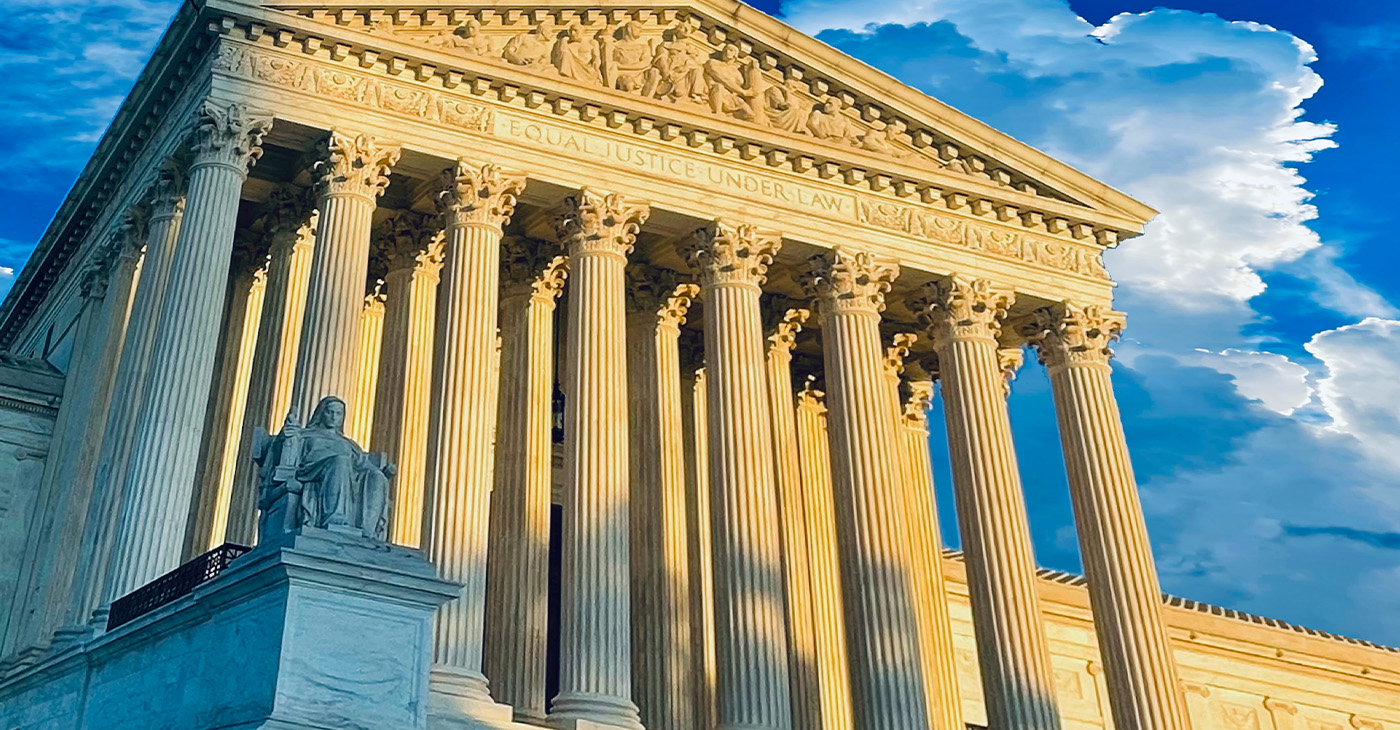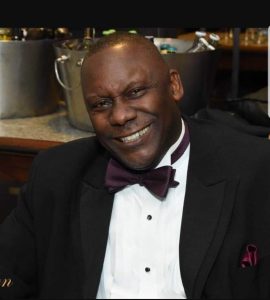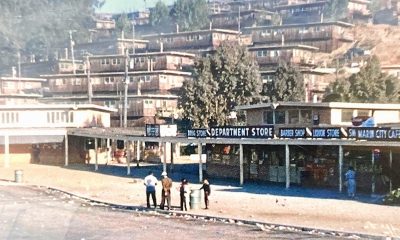Commentary
Commentary: Affirmative Action’s Death Knell Now Loud and Clear
Was the Manhattan DA Alvin Bragg — the man who could make history as the first prosecutor to indict a former president — an affirmative action recipient? Why would anyone ask that? But we know it’s the kind of slight all people of color face. After the incredulous ask, “What are you doing here?”

By Emil Guillermo
Was the Manhattan DA Alvin Bragg — the man who could make history as the first prosecutor to indict a former president — an affirmative action recipient?
Why would anyone ask that?
But we know it’s the kind of slight all people of color face. After the incredulous ask, “What are you doing here?”
Bragg grew up in Harlem on what is known as “Strivers’ Row,” where accomplished African Americans lived in good homes that matched their high status.
And yet, Bragg also knows what it’s like to be stopped by police just for being a person of color.
He also knows what it’s like to graduate from Harvard College and Harvard Law School.
And now that he’s on the verge of history, the man who is the possible perp of the moment, one Donald Trump, can only denigrate Bragg in accepted racist code, calling him a “Soros-backed animal.”
Trump’s reference to wealthy financier George Soros makes him anti-Semitic as well as anti-Black.
That’s how racist code has evolved.
And now Trump, by virtue of his Supreme Court appointments, is responsible for another evolution — the end of the ability to use “affirmative action” to flog an innocent person of color. That’s because in a few months, the high court is expected to end affirmative action at Harvard and essentially all institutions of higher education.
Since a SCOTUS review last October, there’s been little news as we all hope against hope that a tool for equity and equality isn’t negated by the conservative court.
The silence was broken this past week, when the New Yorker Magazine published excerpts from the trial that had been previously sealed.
The most damning thing revealed was a joke, an assessment of one male Filipino American Harvard applicant, written on official Harvard admissions stationery.
Jose is said to be the son of a farmworker killed by a tractor, who now supports his family of 14 while working as a cancer researcher AND playing football as a 132-pound defensive lineman (incredible considering his slight build). But he played at such a high level that not only was he named California Class AAA Player of the Year, he’s had an offer from the Rams of the NFL.
And let’s not give too much credence to the Nobel Prize he’s won.
“After all, they gave one to Martin Luther King, too,” the admission’s assessment reads. “No doubt just another example of giving preference to minorities.”
Far from an instant admit as a young man bound for greatness, Jose is dismissed as an Asian American likely to go pre-med and become a doctor. Ho-hum.
It’s funny in a gallows humor sort of way, and ready for use by either side of the affirmative action debate.
If you’re for it, it drips with the absurdity of the process.
If you’re against it, well, doesn’t this just ring with institutional racism?
But it’s a joke, essentially like an April Fools’ prank, written by an Asian American (Thomas Hibino) who at the time worked at the Department of Justice’s Office for Civil Rights. Hibino, now retired, wrote it in 2012 to jokingly goad his lunch buddy, William Fitzsimmons, the dean of Admissions at Harvard.
And it was so good even Fitzsimmons appears to have been fooled by it.
That’s not exactly a smoking gun to sink affirmative action. But it does reveal a chummy relationship between the regulator (Hibino) and the regulated (Harvard/Fitzsimmons).
And now it looks more like a decorative “final nail” in the Harvard Affirmative Action case —as if one needs any more nails than six conservative justices.
The unsealing of the trial materials is like a death knell that has broken the silence.
I was wondering about it as I finished up my theatrical projects in New York City this past weekend. In Ishmael Reed’s satire, “The Conductor,” one of the roles I played (besides a Brown Tucker Carlson-type) was Ed Blum, the man spearheading the anti-affirmative action group suing Harvard.
My Blum part is just an off-stage voiceover, but one person in the audience, who spoke to Ed Blum recently, asked me who the person was who did a perfect Ed Blum?
The person didn’t know it was me, a Filipino American Harvard graduate.
Which brings me to the other project, “Emil Amok: Lost NPR Host Found Under St. Marks,” where I tell stories of my Filipino American experience in the white mainstream of media and Harvard.
I invited several Harvard classmates from decades ago to attend my performances. Doctors, lawyers, an Academy Award nominee.
One of them told me he was ashamed about those days when we were brought together through Harvard’s admissions process.
“I just assumed you were like me,” said the white New Yorker, who was admitted to Harvard under the ‘legacy’ policy, which gives some preference to children of alumni.
Later, in an email he expressed this: “I shouldn’t have been so solipsistic and blithely assuming. I should have been more sensitive and curious. That aside, it was incredibly moving and meaningful to be let in now and to have a better sense of who you are.”
It only took 45 or so years for the real magic of affirmative action to happen.
And it did happen before SCOTUS is likely to kill it off.
###
NOTE: I will talk about this column and other matters on “Emil Amok’s Takeout,” my AAPI micro-talk show. Listen LIVE most days @ 2 p.m. PST. On Facebook; my YouTube channel; and Twitter. Catch the recordings on www.amok.com.
Commentary
Opinion: Surviving the Earthquake, an Eclipse and “Emil Amok.”
Last Friday, a 4.8 magnitude earthquake shook New York City, reported as the “biggest earthquake with an epicenter in the NYC area since 1884” when a 5.2 quake hit. A bit bigger. The last quake similar to Friday’s was a 4.9 in 1783.Alexander Hamilton felt it — 241 years ago. That’s why New Yorkers were freaking out on Friday. They were in the room where it happens.

By Emil Guillermo
I’m a Northern Californian in New York City for the next few weeks, doing my one-man show, “Emil Amok, Lost NPR Host, Wiley Filipino, Vegan Transdad.”
I must like performing in the wake of Mother Nature.
Last Friday, a 4.8 magnitude earthquake shook New York City, reported as the “biggest earthquake with an epicenter in the NYC area since 1884” when a 5.2 quake hit. A bit bigger. The last quake similar to Friday’s was a 4.9 in 1783.
Alexander Hamilton felt it — 241 years ago.
That’s why New Yorkers were freaking out on Friday. They were in the room where it happens.
And it just doesn’t happen that often.
Beyonce singing country music happens more frequently.
When I felt New York shake last week, it reminded me of a time in a San Francisco TV newsroom when editors fretted about a lack of news an hour before showtime.
Then the office carpeting moved for a good ten seconds, and the news gods gave us our lead story.
On Friday when it happened in NYC, I noticed the lines in the carpeting in my room wiggling. But I thought it was from a raucous hotel worker vacuuming nearby.
I didn’t even think earthquake. In New York?
I just went about my business as if nothing had happened. After living near fault lines all my life, I was taking things for granted.
Considering the age of structures in New York, I should have been even more concerned about falling objects inside (shelves, stuff on walls) and outside buildings (signs, scaffolding), fire hazards from possible gas leaks, and then I should have looked for others on my floor and in the hotel lobby to confirm or aid or tell stories.
Of course, as a Californian who has lived through and covered quakes in the 4 to 6 magnitude range, I tried to calm down any traumatized New Yorker I encountered by taking full responsibility for bringing in the quake from the Bay Area.
I reassured them things would be all right, and then let them know that 4.8s are nothing.
And then I invited them to my consoling post-Earthquake performance of “Emil Amok, Lost NPR Host…”
It was the night of the eclipse.
ECLIPSING THE ECLIPSE
In New York City, the eclipse was about 90 percent visible. Good enough for me. Though a full solar eclipse is a celestial rarity, blockages of any sort aren’t generally celebrated. My one-man play is about growing up with the eclipsed history of American Filipinos and how I struggle to unblock all that.
For example, did you know the first Filipinos actually arrived to what is now California in 1587? That’s 33 years before the Pilgrims arrived in America on the other coast, but few know the Filipino history which has been totally eclipsed.
I was in Battery Park sitting on a bench and there was a sense of community as people all came to look up. A young woman sitting next to me had a filter for a cell phone camera. We began talking and she let me use it. That filter enabled me to take a picture of the main event with my iPhone.
For helping me see, I invited her and her boyfriend to come see my show.
Coincidentally, she was from Plymouth, Massachusetts, near the rock that says the year the Pilgrims landed in 1620.
In my show she learned the truth. The Pilgrims were second.
History unblocked. But it took a solar eclipse.
Next one in 2044? We have a lot more unblocking to do.
If you’re in New York come see my show, Sat. April 13th, 5:20 pm Eastern; Fri. April 19, 8:10 pm Eastern; and Sun. April 21st 5:20 pm Eastern.
You can also livestream the show. Get tickets at www.amok.com/tickets
About the Author
Emil Guillermo is a journalist and commentator. He does a mini-talk show on YouTube.com/@emilamok1. He wishes all his readers a Happy Easter!
Commentary
Commentary: Republican Votes Are Threatening American Democracy
In many ways, it was great that the Iowa Caucuses were on the same day as Martin Luther King Jr. Day. We needed to know the blunt truth. The takeaway message after the Iowa Caucuses where Donald Trump finished more than 30 points in front of Florida Gov. De Santis and former South Carolina Governor Nikki Haley boils down to this: Our democracy is threatened, for real.

By Emil Guillermo
In many ways, it was great that the Iowa Caucuses were on the same day as Martin Luther King Jr. Day.
We needed to know the blunt truth.
The takeaway message after the Iowa Caucuses where Donald Trump finished more than 30 points in front of Florida Gov. De Santis and former South Carolina Governor Nikki Haley boils down to this: Our democracy is threatened, for real.
And to save it will require all hands on deck.
It was strange for Iowans to caucus on MLK day. It had a self-cancelling effect. The day that honored America’s civil rights and anti-discrimination hero was negated by evening.
That’s when one of the least diverse states in the nation let the world know that white Americans absolutely love Donald Trump. No ifs, ands or buts.
No man is above the law? To the majority of his supporters, it seems Trump is.
It’s an anti-democracy loyalty that has spread like a political virus.
No matter what he does, Trump’s their guy. Trump received 51% of caucus-goers votes to beat Florida Gov. Ron DeSantis, who garnered 21.2%, and former South Carolina Gov. Nikki Haley, who got 19.1%.
The Asian flash in the pan Vivek Ramaswamy finished way behind and dropped out. Perhaps to get in the VP line. Don’t count on it.
According to CNN’s entrance polls, when caucus-goers were asked if they were a part of the “MAGA movement,” nearly half — 46% — said yes. More revealing: “Do you think Biden legitimately won in 2020?”
Only 29% said “yes.”
That means an overwhelming 66% said “no,” thus showing the deep roots in Iowa of the “Big Lie,” the belief in a falsehood that Trump was a victim of election theft.
Even more revealing and posing a direct threat to our democracy was the question of whether Trump was fit for the presidency, even if convicted of a crime.
Sixty-five percent said “yes.”
Who says that about anyone of color indicted on 91 criminal felony counts?
Would a BIPOC executive found liable for business fraud in civil court be given a pass?
How about a BIPOC person found liable for sexual assault?
Iowans have debased the phrase, “no man is above the law.” It’s a mindset that would vote in an American dictatorship.
Compare Iowa with voters in Asia last weekend. Taiwan rejected threats from authoritarian Beijing and elected pro-democracy Taiwanese vice president Lai Ching-te as its new president.
Meanwhile, in our country, which supposedly knows a thing or two about democracy, the Iowa caucuses show how Americans feel about authoritarianism.
Some Americans actually like it even more than the Constitution allows.
About the Author
Emil Guillermo is a journalist and commentator. He does a mini-talk show on YouTube.com/@emilamok1.
Activism
Oakland Post: Week of April 10 – 16, 2024
The printed Weekly Edition of the Oakland Post: Week of April 10 – 16, 2024

To enlarge your view of this issue, use the slider, magnifying glass icon or full page icon in the lower right corner of the browser window. ![]()
-

 Activism4 weeks ago
Activism4 weeks agoOakland Post: Week of March 20 – 26, 2024
-

 #NNPA BlackPress3 weeks ago
#NNPA BlackPress3 weeks agoCOMMENTARY: D.C. Crime Bill Fails to Address Root Causes of Violence and Incarceration
-

 #NNPA BlackPress3 weeks ago
#NNPA BlackPress3 weeks agoMayor, City Council President React to May 31 Closing of Birmingham-Southern College
-

 #NNPA BlackPress3 weeks ago
#NNPA BlackPress3 weeks agoFrom Raids to Revelations: The Dark Turn in Sean ‘Diddy’ Combs’ Saga
-

 #NNPA BlackPress3 weeks ago
#NNPA BlackPress3 weeks agoCOMMENTARY: Lady Day and The Lights!
-

 #NNPA BlackPress3 weeks ago
#NNPA BlackPress3 weeks agoBaltimore Key Bridge Catastrophe: A City’s Heartbreak and a Nation’s Alarm
-

 #NNPA BlackPress3 weeks ago
#NNPA BlackPress3 weeks agoBaltimore’s Key Bridge Struck by Ship, Collapses into Water
-

 Activism3 weeks ago
Activism3 weeks agoOakland Post: Week of March 27 – April 2, 2024
















































